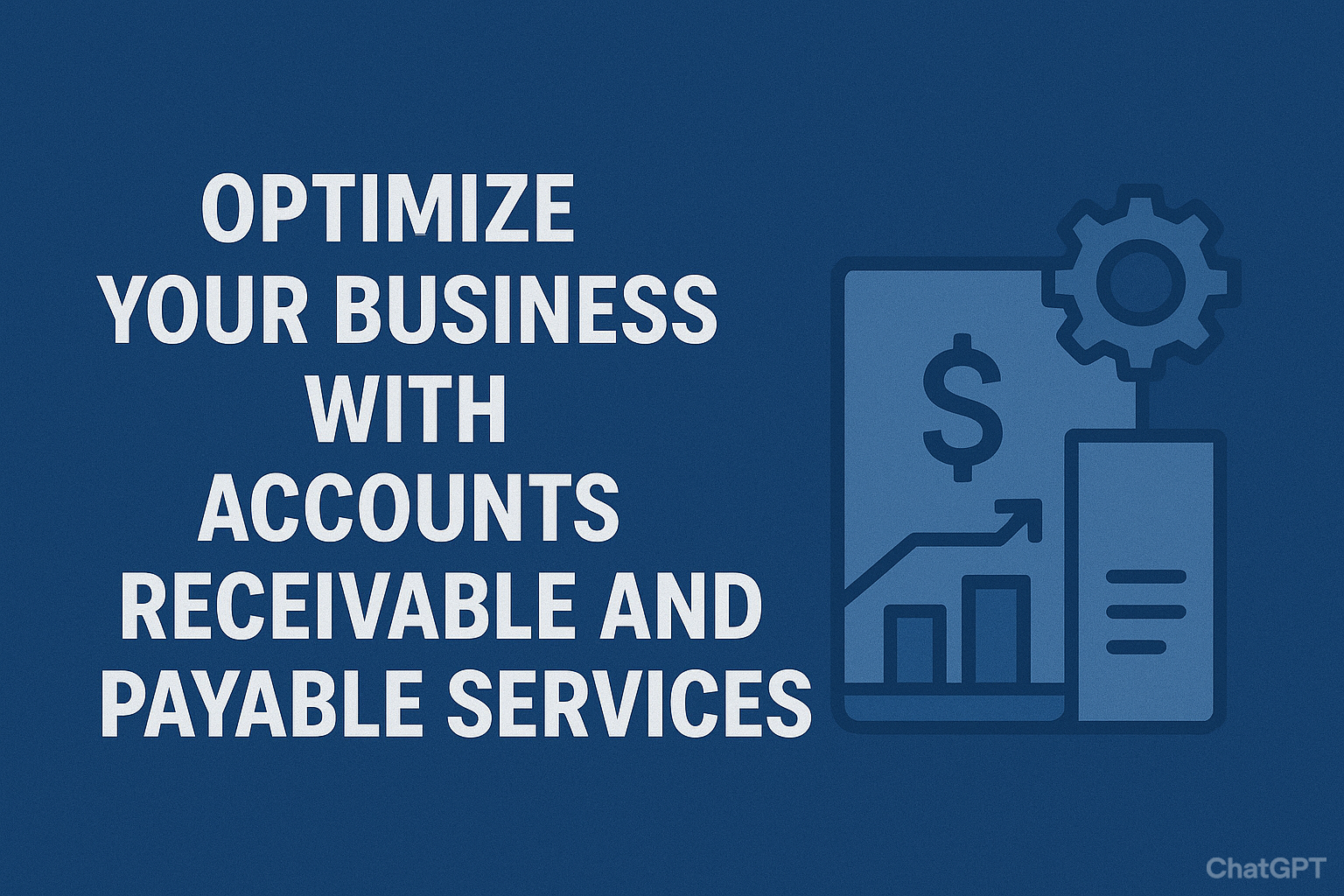Accounts Receivable & Payable Services are the most critical factor in the business. Every manager can examine their business plans and find one crucial factor which of financial transactions. Proper management of AR and AP provides correct cash flow and prevents the company from facing financial problems.
What are Accounts Receivable and Payable Services?
It is the amount customers own to a business from the products or services they have received. It is the core of the company’s cash flow. Customers take time to make all the payments, resulting in cash flow disorders affecting the businesses’ operational calendar. Outsourced accounts receivables services ensure companies get their payments on time and maintain good cash flow.
On the other hand, accounts payable means the amount that a business owes its suppliers or vendors for services or goods purchased. These short-term debts must be paid at a specific time to protect penalties or to affect supplier-customer relationships. Adequate account payable management is essential to maintain positive relations and business continuity.
Let’s explore why businesses consider Accounts Receivable & Payable services so important.
Accounts receivable & payable services are as important as each other in keeping the financial health of an organization. This means that organizations can face many issues. When accounts receivable are unpaid, the organizations can experience a lack of cash flow, which abruptly stops day-to-day operations.
Conversely, failure to handle accounts payable affects a business in terms of late payment penalties, tarnished business image, and credit privileges from the suppliers. Thus, every company should manage accounts receivable and accounts payable properly and adequately to avoid frequent financial issues.
What Exactly is Meant by Accounts Payable Process?
Accounts payable is an essential tool for tracking all a company’s debts to its suppliers. It means that all payments are processed appropriately and on time. This process involves several key steps:
- Goods Receipts and Invoice Verification
Suppliers and vendors provide bills in their forms, which are generally known as invoices. They are used to verify all the details and confirm that the goods and services rendered are in concordance with the agreed-on specifications.
- Approving Invoices
The authorized person of the company should duly sign the verification document. Once these have been approved, they are ready for payment.
- Payment Processing
The second necessary process is obtaining approval, scheduling, and processing the payment. It ensures that all the payments should be made at the right time. Late payments cause penalties, which means that through accounts payable, all debts are paid when they are due.
- Recording the Payment
The last process is to record all the transactions in the books. This step also helps the business document all payments made outside the company.
Why the Accounts Payable Process is a Big Deal
The accounts payable process is essential because it allows organizations to monitor their debts. An efficient accounts payable procedure helps a business reduce costs by paying back outstanding bills without delay and penalties while at the same time enjoying good standing with its suppliers.
Receivable Management Services can be well understood in today’s highly competitive business world.
Organizations require checks to be paid to their vendors to ensure they retrieve their payments on time. This is where receivable management services are helpful. Such services assist firms in managing customers’ receivables, reminding the customers, and expediting the payment process.
Effective receivable management services involve several vital activities:
- Invoicing Customers
Customers receive business invoices at the point of sale or where they receive a particular service. The longer an invoice takes to be sent out, the longer it will take to get the money.
- Tracking Payments
After invoices are sent, businesses need to track payment status. The receivable management services sometimes contain features that enable companies to determine which payments are incoming, overdue, or made.
- Sending Reminders
Customers who delay payment get reminders from time to time. If needed, it may begin with simple notification messages and progress to more formal information collection processes.
- Handling Disputes
Occasionally, there may be disagreements between the organization and the customers on the amount or other conditions of an invoice. Receivable management services can resolve disputes so that payment can be made with haste and not delayed deliberately.
Read also: Accounts Payable vs Accounts Receivable: What’s the Difference
Why Receivable Management Services are Necessary
Proper receivable management services are essential in any organization since inadequate control can lead to severe muscular cash flow problems. Customer payment delays can impact upstream suppliers and adversely affect the recipient company. Accounts receivable management allows organizations to get paid on time, make a profit at all times, and not borrow to meet their losses.
Further, these services enhance customer relations by offering correct and brief billing and payment procedures. Customers follow business organizations that handle their accounts professionally.
Conclusion
Compelling accounts receivable & payable services are necessary for any organization aiming for financial stability. Accounts payable procedures monitor the suppliers’ payments to the business, while the receivable management services monitor customers so that the company is paid on time. By accessing these services, firms will close many of their financial problems, receive and control their money sooner, and keep good customer and supplier relations.



Share this Article